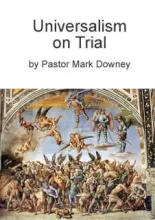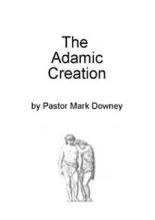The Ungodliness of Being a Coward
by Pastor Mark Downey
Revised February 10, 2012
Scripture Reading: Numbers 13:30-33
Let me begin by recollecting a scene from the movie, "Patton", in which George C. Scott reenacts the encounter General Patton has with a soldier at a field hospital. The General is honoring his wounded men until he comes to this one guy shaking like a leaf and he asks a nurse, "What's wrong with the man?" She said something like, "Oh, sir, he's suffering from the emotional stress of the battlefield." At that point, Patton takes off his gloves and starts smacking the soldier in the face, calling him a coward; telling him there's nothing wrong with him and running him out of that hospital where other soldiers were bleeding, bandaged and dying on their deathbeds.
Do you think Patton understood the implications of cowardice among his troops if gone unchecked? For one thing, you're not going to win a war, if your men lose the will to fight. By the same token, do you think our God understands the ramifications of a coward in and among His people, Israel? When the Lord declares in Jeremiah 51:20 that our race is His battle axe and weapons of war, the thought of a coward doesn't even enter the picture. In fact, the word coward is not even in the Bible, although, as we'll see, there are cases of cowardice. God's Word is more focused on the godliness of victory and the means in which to achieve it than having a preoccupation with defeat. The enemy works very hard to instill a mindset of doom and futility, which leads to our surrender to the world.
I'm going to show you why the politics of surrender is ungodly and what constitutes the ungodliness of being a coward.
- Read more about The Ungodliness of Being a Coward
- Log in to post comments

 "For thou art an holy people unto the Lord thy God: the Lord thy God hath chosen thee to be a special people unto himself, above all people that are upon the face of the earth."Deuteronomy 7:6
"For thou art an holy people unto the Lord thy God: the Lord thy God hath chosen thee to be a special people unto himself, above all people that are upon the face of the earth."Deuteronomy 7:6







